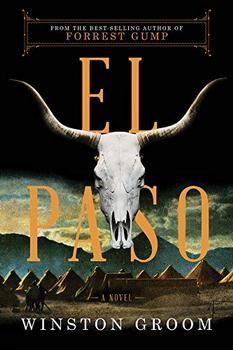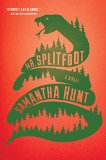Summary | Excerpt | Reviews | Beyond the book | Read-Alikes | Genres & Themes | Author Bio

Canadian author Richard Wagamese's latest novel, Medicine Walk, is a deeply felt moving portrait of a dying father and his estranged son as they undertake a final journey together.
Franklin Starlight is a young Ojibwe man whose experiences with his mostly absent father, Eldon, are a kaleidoscope of parental failure: missed birthdays, broken promises, picnics where Eldon disappears only to return too drunk to drive home. Franklin is understandably reluctant to answer his father's summons to visit him in a nearby town, and is also unenthusiastic about honoring what Eldon claims is his last wish. Claiming he is dying of liver failure, Eldon wants his son to help him reach a ridge in the wilderness 40 miles away and to bury him there in "the warrior way" – sitting upright in the grave and facing east. Although angry and resentful, Franklin agrees and the odyssey begins. Over the course of the expedition the two men discover truths about themselves as Eldon confronts the pain and errors of his past and Franklin comes to understand, if not forgive, his father.
The book is a masterwork in many ways. First and foremost is Wagamese's writing style. In spare but descriptive prose reminiscent of the works of Cormac McCarthy and Ernest Hemingway he conveys scene after scene in vivid detail.
He walked the old mare out of the pen and led her to the gate that opened out into the field. There was a frost from the night before, and they left tracks behind them. He looped the rope around the middle rail of the fence and turned to walk back to the barn for the blanket and saddle. The tracks looked like inkblots in the seeping melt, and he stood for a moment and tried to imagine the scenes they held. He wasn't much of a dreamer though he liked to play at it now and then. But he could only see the limp grass and mud of the field and he shook his head at the folly and crossed the pen and strode through the open black maw of the barn door.
Nearly every page contains phrases of such stunning imagery that I found myself constantly pausing simply to appreciate their overwhelming power and beauty. The author captures the perfect cadence for the story, too, adding to its atmospheric feel.
The characters are expertly portrayed as well, with the two protagonists being drawn with both a believability and a complexity that makes them feel real. Franklin's stoic character neatly belies his repressed rage at being deprived of knowledge about his past and his family, while Eldon's crass, belligerent drunkenness masks a man whose life has been a litany of poverty and tragedy. The two personalities balance each other nicely throughout the story, with each softening and becoming more accepting as Eldon's death approaches.
Another aspect of the book's appeal is the choice and development of its themes. In addition to exploring the relationship between father and son, the metaphorical journey toward one's mortality, and the importance of living in harmony with nature, the author takes great pains to illustrate the relevance of the overall story of one's life; indeed, one character tells Franklin: "It's all we are in the end. Our stories." Eldon explains to Franklin that their last name, Starlight, was an appellation at one time given by fellow tribe members to those meant to be teachers and storytellers. He tells his son, "Somethin' your grandmother said. Stories get told one word at a time. Maybe she was talkin' about life." Eldon shares his history by telling stories that help Franklin understand how his father developed into the dying wreck he has become. This theme in particular resonated with me, prompting a contemplation of the story I'm building – "one word at a time" - of my own life.
If I have any criticism at all, it is that Franklin seems much older than his stated 16 years. Granted, he's been largely on his own and is mature for his age, but I couldn't quite reconcile his competence and composure with a 16-year-old teen. Still, this complaint is so minor compared to the overall stellar nature of the book that it's more of a nit-pick than anything else, and it shouldn't keep anyone from enjoying this fine work.
I absolutely loved Medicine Walk and will definitely be exploring Richard Wagamese's other works. I highly recommend the novel to anyone who enjoys reading high-quality literary fiction; in my opinion, it just doesn't get any better than this.
![]() This review was originally published in The BookBrowse Review in June 2015, and has been updated for the
May 2016 edition.
Click here to go to this issue.
This review was originally published in The BookBrowse Review in June 2015, and has been updated for the
May 2016 edition.
Click here to go to this issue.

If you liked Medicine Walk, try these:

by Winston Groom
Published 2017
Three decades after the first publication of Forrest Gump, and seventeen years since his last novel, Winston Groom returns to fiction with this sweeping American epic.

by Samantha Hunt
Published 2017
A contemporary gothic from an author in the company of Kelly Link and Aimee Bender, Mr. Splitfoot tracks two women in two times as they march toward a mysterious reckoning.
Your guide toexceptional books
BookBrowse seeks out and recommends the best in contemporary fiction and nonfiction—books that not only engage and entertain but also deepen our understanding of ourselves and the world around us.